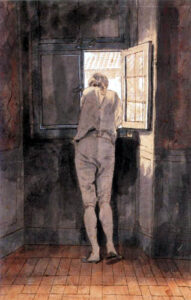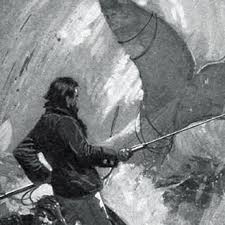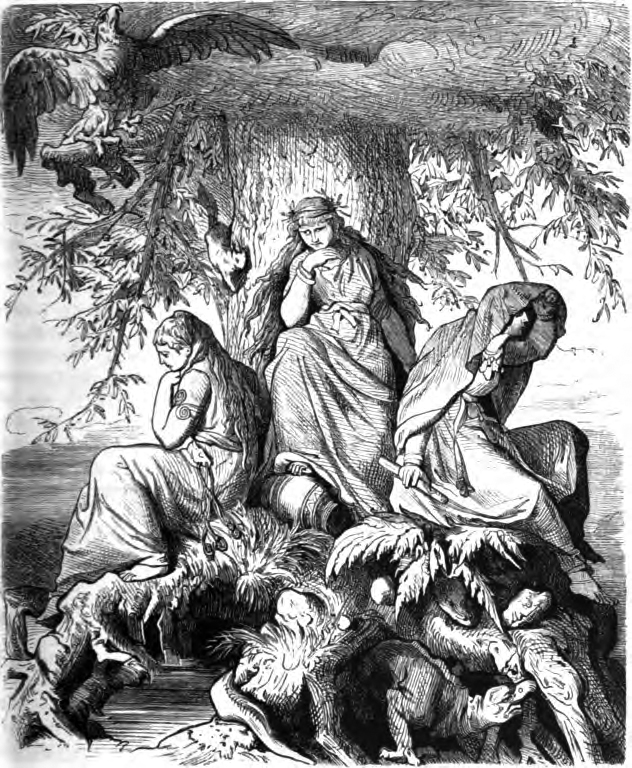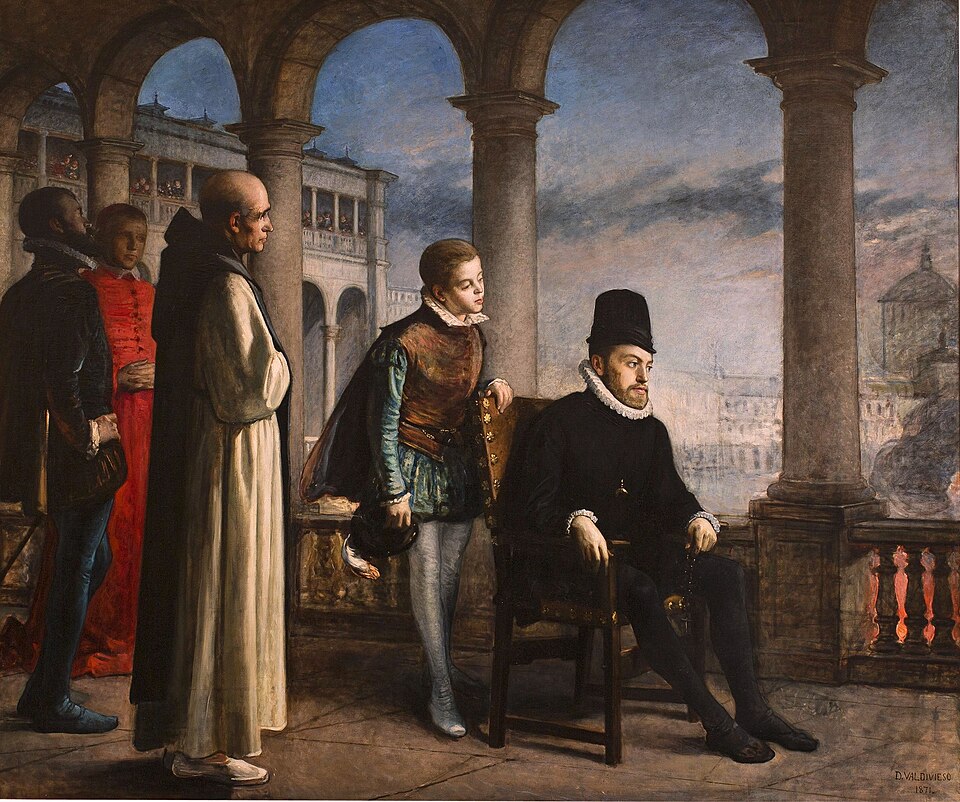If Cervantes seems to be the central figure of Spanish literature, Johann Wolfgang von Goethe appears to be the central figure of German literature.
Goethe’s most famous work is Faust, one of the great works of world literature. Its plot reminds us of Satan’s wager with the god of the Jews in the Book of Job. In Goethe’s novel, Mephistopheles makes a pact with God: he says he can divert God’s favourite human being (Faust), striving to learn everything that can be known, away from moral purposes. It also reminds me of the plot of Wagner’s Tannhauser. I have already said on this site that when I first saw the opera I was disappointed because it put Christianity triumphing over paganism (the Virgin Mary over the Goddess Venus). Cervantes and Shakespeare didn’t play into the hands of the Church, and neither did Goethe. But it is clear that like Wagner they never escaped Christian mythology.
I would not like to focus on Goethe’s masterpiece but on what was, at the time, the most popular: The Sorrows of Young Werther (Die Leiden des jungen Werthers): a semi-autobiographical epistolary novel. Considered the book that initiated Romanticism, it brought the young Goethe worldwide fame.
The main character of the novel, Werther, is a sensitive and passionate young man who falls madly in love with Charlotte. In real life, Goethe had fallen in love with a young woman named Charlotte (and in real life, in Manchester, I myself fell in love with a Charlotte who never returned my love!).
So influential was that novel, which Goethe had written in his early twenties, that towards the end of his life travelling to Weimar and visiting the master of German literature was a ritual. In one of his writings Goethe himself mentioned that his youthful suffering was partly the inspiration for the creation of the novel, although unlike the novelist Werther takes his own life at the moment when the midnight bells ring in Wahlheim. Most of the visitors he had in his old age had only read this book and only knew the writer from this novel among all those he wrote! It was very clear what a great impact The Sorrows of Young Werther had on young people in love and depressed.
I wonder what subliminal clues Werther had that a whole generation of young Europeans caught that fever to the point of dressing like the character: with a yellow vest, blue jacket and brown boots. Even some two thousand young Europeans took their own lives! ‘The bullet had entered above the right eye, blowing out the brains’ I read on the penultimate page of the copy of the novel I own. So much did the novel in the form of an epistle catch fire to Europe, that the small town where the fictional events took place became a sort of place of pilgrimage. Napoleon himself carried a copy of Werther in his field backpack!
Already in the 20th century my mother confessed to me that in her early teens this book had made a great impression on her. In my previous article I said that almost all the literary content of the Spanish writers of the Golden Age tasted rancid to me. It is curious to mention what I wrote some years ago on the inside back cover of my copy of Werther (my translation):
Wow!
I barely read the first few words of the book and couldn’t continue. I’d have to see a German film of the novel—if there is one. What matters is that they were committing suicide because ‘In those days parents didn´t listen to their children’, [the words of] Mom.
She didn’t tell me that in relation to Werther, but to a bitter experience she had when she was taken as a child to see The Blue Bird on the big screen: the only occasion, in her entire life, when an indirect criticism of either of her parents came out.
To be frank, I don’t think a teenager who has been treated well by his parents would be capable of committing suicide just because of a love setback. There must something wrong in the lad’s psyche, but to find out we have to dynamite the taboos of the age whose Judeo-Christian commandment to honour the parent has deeply permeated the secular world (Alice Miller has written on this secularization in The Body Never Lies).
That’s why this kind of old literature tastes rancid. Unlike not only the times of Goethe, but the times of my mother (who must have been a little girl when the translated The Blue Bird was released in the country), in this era it is already possible to speak crudely about how we were mistreated at home. So, if the least direct criticism of her parents never came out of my mother’s mouth except for the above quote (which came out indirectly when she was already an old woman), we can imagine on whom she unloaded her pent-up anger. All this has to do with Werther precisely because of the literary genre that I would like people like Benjamin and myself to inaugurate.
The following seven paragraphs I had already posted on this site in January 2015 under the heading ‘New Literary Genre’, but they are worth quoting again:
Stefan Zweig wrote in Adepts in Self-Portraiture that when Western literature began with Hesiod and Heraclitus it was still poetry, and of the inevitability of a decline in the mythopoetic talent of Greece when a more Aristotelian thought evolved. As compensation for this loss, says Zweig, modern man obtained with the novel an approach to a science of the mind. But the novel genre doesn’t represent the ultimate degree of self-knowledge:
Autobiography is the hardest of all forms of literary art. Why, then, do new aspirants, generation after generation, try to solve this almost insoluble problem?
[For a] honest autobiography […] he must have a combination of qualities which will hardly be found once in a million instances. To expect perfect sincerity on self-portraiture would be as absurd as to expect absolute justice, freedom, and perfection here on earth. No doubt the pseudo-confession, as Goethe called it, confession under the rose, in the diaphanous veil of novel or poem, is much easier, and is often far more convincing from the artistic point of view, than an account with no assumption of reserve. Autobiography, precisely because it requires not truth alone, but naked truth, demands from the artist an act of peculiar heroism; for the autobiographer must play the traitor to himself.
Only a ripe artist, one thoroughly acquainted with the workings of the mind, can be successful here. This is why psychological self-portraiture has appeared so late among the arts, belonging exclusively to our own days and those yet to come. Man had to discover continents, to fathom his seas, to learn his language, before he could turn his gaze inward to explore the universe of his soul. Classical antiquity had as yet no inkling of these mysterious paths. Caesar and Plutarch, the ancients who describe themselves, are content to deal with facts, with circumstantial happenings, and never dream of showing more than the surface of their hearts.
Zweig then devotes a long paragraph to St Augustine’s Confessions, the thinker I abhor the most of all Western tradition and whose theology about Hell caused massive psychological damage in my own life (see Hojas Susurrantes). Then he wrote:
Many centuries were to pass before Rousseau (that remarkable man who was a pioneer in so many fields) was to draw a self-portrait for its own sake, and was to be amazed and startled at the novelty of his enterprise. Stendhal, Hebbel, Kierkegaard, Tolstoy, Amiel, the intrepid Hans Jaeger, have disclosed unsuspected realms of self-knowledge by self-portraiture. Their successors, provided with more delicate implements of research, will be able to penetrate stratum by stratum, room by room, farther and yet farther into our new universe, into the depths of the human mind.
This quote explains why I decided to devise a hybrid genre between the self-portraiture that betrays the author and thus penetrates beyond the strata pondered by Romantic autobiographers. And it is precisely because of this that, if we have tried to reach this level, the previous stages of confessional literature already seem rancid to us, Werther included: they don’t get to the heart of the matter.
That said, there are a few biographical vignettes about Goethe that I wouldn’t want to overlook. For example, he dearly loved his sister Cornelia, the only surviving of his siblings (I will allude to this below in the context of Goethe’s own children).
Johann Kaspar, Goethe’s father had been a well-to-do scholar, and the letters of Katharina Elizabeth, his mother are quite readable. Goethe studied in Leipzig in enviable times when machine noises weren’t yet audible (I write this over the intolerable sound of air conditioning given the temperature outside my study):

A similar image could be added about Weimar, where Goethe took up residence after the publication of Werther. It was in the old Weimar court theatre that the first Goethean dramas, that he directed for a quarter of a century, were presented.

The trip to beautiful Italy had been pivotal in Goethe’s education. In the image above we see Goethe at the window of his home in Rome, a drawing by Tischbein. It was a time when St. Peter’s stood as the tallest building in the city. As I have said, it is impossible for a ‘man of his time’ not to be influenced by these architectural realities. And Goethe was, like Dante, Cervantes and Shakespeare, a man of his time. Only Nietzsche would rebel against the Christian era, but this is another matter altogether.
Goethe even visited Sicily. I, who like Nietzsche am a premature birth of a future not yet verified, when I travel to Europe I notice the purity of the Aryan in the faces (let’s say: the difference between the Italian near Switzerland and the Sicilian). As a man of his time Goethe noticed other things. On January 25, 1788 he wrote to a duke: ‘The great scenes of nature opened my mind and took away my wrinkles; I created for myself an opinion on the value of landscape painting, and saw Claude Lorrain and Poussin with different eyes; with Hackert, who came to Rome, I spent fourteen days in Tivoli’.
I am intrigued that Goethe’s wife Christiane, whom he had married in 1806, had five children with him of whom only the first survived. It reminds me of what Lloyd deMause wrote in several of his books: at that time babies died mainly from maternal neglect.
The surviving August not only had to live in his father’s shadow, but he died two years before Goethe did! I wonder how he was treated by his father: a kind of question that conventional biographers would never ask. From my point of view, that of the new literary genre, that question is more vital than, say, writing about the friendship between Goethe and the poet Schiller (when the latter died, Goethe felt deprived of the one person to whom he had recognised equal intellectual value). I would prefer to know, of the four children who died of undetermined causes a few days after their births, which reminds me of Goethe’s missing siblings, how were those babies treated?
Another fact that reflects that I am not a man of my time is that one of Goethe’s late inspirational women was the nineteen-year-old Ulrike, who was so afraid of sexual intercourse that she would become canonical: something unthinkable in the Aryan state I imagine, where women will have as much obligation to procreate as men to fight ethnocidal wars (like Hitler’s Master Plan East).
Incidentally, it was some words from Faust that inspired me in a phrase that in years past I have posted on this site: Only the eternal feminine leads to the Absolute.

 There is another famed literary work that may provide insight into Breaking Bad’s true significance: the aforementioned Herman Melville novel Moby Dick. The White Man, then, is America’s White Whale, and he hunts himself. His poisoned consciousness striving to slay the primal, untamed life force within, the inner Heisenberg. Pitted against himself, he despises this uninhibited inner nature, because it does not conform to the false moral system that has been imposed upon him, and by which he judges and condemns his own being.
There is another famed literary work that may provide insight into Breaking Bad’s true significance: the aforementioned Herman Melville novel Moby Dick. The White Man, then, is America’s White Whale, and he hunts himself. His poisoned consciousness striving to slay the primal, untamed life force within, the inner Heisenberg. Pitted against himself, he despises this uninhibited inner nature, because it does not conform to the false moral system that has been imposed upon him, and by which he judges and condemns his own being. 







